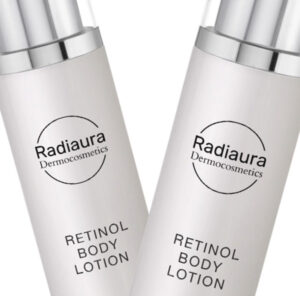November 11, 2024
Top Skin Care Products for Radiation Treatment Relief

Introduction
Radiation treatment can be tough on the skin, leading to discomfort and irritation. Understanding skin care during radiation treatment is essential for maintaining skin health and comfort. This post will discuss effective strategies to protect and soothe your skin during this challenging time. From choosing the right products to simple daily routines, you will find practical tips that can make a significant difference in your skin care journey.
Radiation therapy is a medical treatment that uses high-energy rays to eliminate cancer cells. It targets tumors while aiming to spare healthy tissue. Doctors often recommend it as a primary treatment or after surgery to reduce the risk of cancer returning. Radiation can be given externally, using machines that focus beams on the tumor, or internally, by putting radioactive material near the cancer. Patients usually undergo several sessions over a few weeks, and while some side effects may occur, many find it a vital part of their cancer care.
“Skin care during radiation treatment is crucial because the skin can become sensitive and damaged. Patients often experience dryness, redness, and irritation in areas receiving radiation. Proper skin care helps to soothe these symptoms and protect the skin from infections. Using gentle cleansers and moisturizers can improve comfort and promote healing. It’s also important to avoid products with harsh chemicals or fragrances. Taking care of your skin can make a big difference in how you feel during treatment and supports your overall recovery.”
Understanding Radiation Effects on Skin
Radiation therapy can have several effects on skin in the treated area. Redness and inflammation, known as radiation dermatitis, often appears within a week or two of starting therapy and can last for several weeks. Dryness frequently occurs, making skin feel rough or tight, and it’s common for patients to experience itching, which can be bothersome. Hyperpigmentation may develop, causing darker patches of skin. The symptoms usually improve over time, but some changes, especially hyperpigmentation, can persist for months or longer. It’s essential to monitor your skin and report any severe reactions to your healthcare provider.
Essential Skin Care Tips
Gentle skin cleansing is essential during radiation therapy because the skin can become sensitive and irritated. It’s important to avoid harsh soaps that can worsen this sensitivity. A recommended product is Radiaura Gentle Cream Cleanser, which effectively cleanses without stripping the skin of its natural moisture. This cleanser helps soothe the skin, making it a great choice for anyone undergoing treatment. Using gentle products like this can help maintain skin health and comfort during a challenging time.
Topical tranexamic acid is effective for treating hyperpigmentation that occurs because of inflammation. A recommended product is Radiaura Brightening Serum, which can be applied in a thin layer after gently cleansing the skin. This serum contains 3% tranexamic acid, which helps lighten dark spots. It also includes green tea extract, known for its beneficial components like epigallocatechin gallate (EGCG) and caffeine, which can support skin health and enhance the overall effectiveness of the serum.
It’s important to moisturize the skin to prevent dryness and irritation. Radiaura Radiation Relief Lotion, which contains calendula, is recommended for this purpose. It can be applied at least twice daily, or more if needed, to keep the skin hydrated. For added protection, Radiaura Silicone Skin Gel can be applied on top of the lotion, after allowing the lotion to dry, to create a barrier that shields the skin. Some doctors advise against applying any products within a few hours before radiation treatment, so it’s best to plan your applications accordingly.
Sun protection is crucial for anyone undergoing radiation therapy, as this treatment can make the skin more sensitive to the sun’s harmful rays. Using a sunscreen with an SPF of at least 30 is recommended to help prevent sunburn and skin damage. Radiaura Daily Defense Sunscreen is a great choice, as it is a broad-spectrum mineral sunscreen that protects the skin with an effective SPF of 40 and includes gentle and soothing ingredients that support healing. It can be used on the face and body. Regular application can help maintain skin health during and after radiation therapy.
Products to Avoid
During radiation treatment, it’s crucial to avoid skin products that can irritate the skin. Ingredients like fragrances and alcohol can dry out and inflame sensitive skin, making discomfort worse. Exfoliating agents, such as scrubs or chemical peels, can also cause damage by removing essential layers of skin, which is not ideal when the skin is already vulnerable. Choosing gentle, fragrance-free, and alcohol-free products can help soothe and protect the skin during this challenging time.
When to Seek Professional Help
During radiation treatment, seek professional help if you notice signs of severe reactions. These signs include unusual pain or discomfort, symptoms of infection like fever or increased redness, or any significant changes in your skin. Your radiation oncologist is key in these situations, as they understand your specific skin needs and provide ongoing monitoring and personalized recommendations during radiation treatment. If skin issues arise, consulting with a dermatologist can also be beneficial for specialized care. Some dermatologists specialize in oncodermatology, which involves the diagnosis, treatment, and management of skin conditions that arise from cancer and cancer treatments. Addressing these concerns promptly can help ensure a smoother treatment process and better overall outcomes.
Conclusion
Skin care is important during radiation treatment because the skin can become sensitive and damaged. Gentle cleansing helps maintain skin integrity, while effective serums and moisturizers provide hydration and help with repair. Barrier gels protect the skin from irritation and friction, and sunscreen is essential to shield treated areas from harmful UV rays. It’s vital for patients to prioritize their skin health throughout this process to reduce discomfort and promote healing. Taking these steps can make a significant difference in overall well-being during treatment.
Disclaimer: This article is for informational purposes only and should not be taken as medical advice. Consult with a healthcare professional for personalized guidance on radiation therapy and its potential impact on your skin health.


